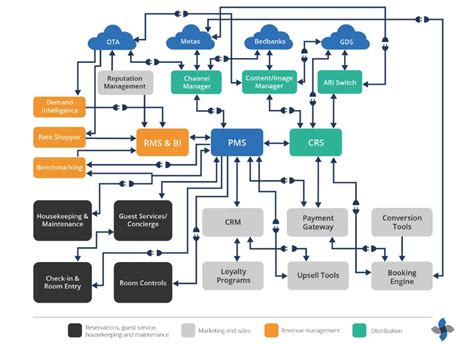As the hospitality industry continues to evolve, hotels are under increasing pressure to stay ahead of the curve when it comes to technology. A well-crafted hotel tech stack is essential for delivering exceptional guest experiences, driving operational efficiency, and ultimately, driving revenue growth. In this article, we'll explore the importance of building a winning hotel tech stack and provide guidance on how to create one that meets your hotel's unique needs.
The Importance of a Winning Hotel Tech Stack
A hotel tech stack refers to the collection of software applications and tools used to manage and operate a hotel. It encompasses everything from property management systems (PMS) and revenue management systems (RMS) to guest-facing technologies like mobile apps and kiosks. A winning hotel tech stack is one that seamlessly integrates these various systems, enabling hotels to streamline operations, enhance the guest experience, and drive business success.
Key Components of a Winning Hotel Tech Stack
So, what are the essential components of a winning hotel tech stack? While the specific tools and systems may vary depending on your hotel's size, type, and needs, there are several key components that every hotel should consider:
Property Management System (PMS)
A PMS is the central nervous system of your hotel's operations. It manages front desk, housekeeping, and maintenance tasks, as well as handles room bookings, rates, and availability. A modern PMS should be cloud-based, mobile-friendly, and integrated with other systems, such as revenue management and customer relationship management (CRM) tools.

Revenue Management System (RMS)
An RMS helps hotels optimize room rates and availability to maximize revenue. It analyzes market data, competitor rates, and demand forecasts to provide actionable insights and recommendations. A robust RMS should be integrated with your PMS and other systems, such as your hotel's website and online travel agencies (OTAs).
Customer Relationship Management (CRM) System
A CRM system helps hotels manage guest interactions and relationships throughout the customer journey. It tracks guest preferences, loyalty program activity, and communication history, enabling personalized marketing and service. A modern CRM should be integrated with your PMS, RMS, and other systems, such as your hotel's website and social media channels.

Guest-Facing Technologies
Guest-facing technologies, such as mobile apps, kiosks, and digital signage, enhance the guest experience and streamline operations. They provide guests with convenient access to hotel services, amenities, and information, while also reducing labor costs and improving efficiency.
Data Analytics and Business Intelligence
Data analytics and business intelligence tools help hotels make data-driven decisions by providing insights into operational performance, guest behavior, and market trends. They analyze data from various systems and sources, including your PMS, RMS, CRM, and website, to provide actionable recommendations and forecasts.

Best Practices for Building a Winning Hotel Tech Stack
Building a winning hotel tech stack requires careful planning, consideration, and execution. Here are some best practices to keep in mind:
Assess Your Hotel's Needs
Before selecting any technology, assess your hotel's specific needs and goals. Consider your hotel's size, type, and target market, as well as your operational challenges and opportunities.
Choose Integrated Systems
Choose systems that integrate seamlessly with each other, reducing the need for manual data entry and minimizing the risk of errors. Integrated systems also provide a more comprehensive view of your hotel's operations and performance.
Consider Cloud-Based Solutions
Cloud-based solutions offer greater flexibility, scalability, and cost savings compared to on-premise solutions. They also provide automatic software updates and maintenance, reducing the burden on your hotel's IT resources.

Prioritize User Experience
Prioritize user experience when selecting technology, both for your staff and your guests. Choose systems that are intuitive, user-friendly, and provide a seamless experience.
Monitor and Evaluate Performance
Monitor and evaluate the performance of your hotel tech stack regularly, using data analytics and business intelligence tools to identify areas for improvement.
Gallery of Hotel Tech Stack Solutions






Frequently Asked Questions
What is a hotel tech stack?
+A hotel tech stack refers to the collection of software applications and tools used to manage and operate a hotel.
Why is a winning hotel tech stack important?
+A winning hotel tech stack is essential for delivering exceptional guest experiences, driving operational efficiency, and ultimately, driving revenue growth.
What are the key components of a winning hotel tech stack?
+The key components of a winning hotel tech stack include a property management system (PMS), revenue management system (RMS), customer relationship management (CRM) system, guest-facing technologies, and data analytics and business intelligence tools.
In conclusion, building a winning hotel tech stack requires careful planning, consideration, and execution. By prioritizing user experience, choosing integrated systems, and monitoring performance, hotels can create a tech stack that drives business success and enhances the guest experience.
